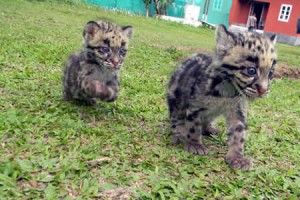 Two rare clouded leopard cubs and four Asiatic black bear cubs that had been rescued after they were separated from their mothers, are now ready to begin their new life in the jungles of Manas National Park in Assam after having spent quite some time in human company.
Two rare clouded leopard cubs and four Asiatic black bear cubs that had been rescued after they were separated from their mothers, are now ready to begin their new life in the jungles of Manas National Park in Assam after having spent quite some time in human company.
The cubs were at the Centre for Wildlife Rahabilitation and Conservation (CWRC) Transit Home in Kokrajhar in Assam. They were moved to Kachugaon Forest Division to begin the next phase in their ‘soft- release’ with the assistance of the eco-development wing of the Indian Army.
“The principle of soft-release entails allowing the young cubs to learn the ways of survival in the wild over a period of time, with humans as their foster mothers,” said Dr Panjit Basumatary, IFAW-WTI veterinarian, in-charge of the cubs’ rehabilitation.
The cubs had been confiscated by the Assam Forest Department earlier when locals found them alone in the wild in three separate incidents. The clouded leopard cubs were rescued from Chirang and the bear cubs were brought from Udalguri and Nalbari districts.
MC Brahma, Divisional Forest Officer – Wildlife, Kokrajhar had important message to give during the soft release.
“Nature belongs to each one of us. People should not hold ourselves above other living things and have no right to drive them to extinction. To save wildlife requires positive action; it requires change in lifestyle, attitude and perception. This rehabilitation attempt is one such positive action – maybe small but significant. However, our prime objective is to make everyone nature-literate.”
Dr NVK Ashraf, Chief Veterinarian, WTI said that although the bears and the clouded leopards were being released at the same time, the strategy to release was different in both cases. For clouded leopards the release was more challenging as they are carnivores animals and nocturnal.
“Clouded leopards are carnivores and nocturnal. Their soft release is more complicated as it requires both day and night time walks and learning hunting instinctively without having seen their mother in action. Asiatic black bears however are omnivores and are relatively easier to release, as foraging comes naturally to them.”
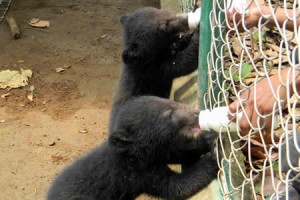 The next plan of action for the cubs is that they would be escorted by their respective keepers and taken for walks in the wild, until the keepers reduce their dependence on the human company. After about six – eight months when the cubs start showing independence they will be radio collared and allowed to venture alone in the jungle.
The next plan of action for the cubs is that they would be escorted by their respective keepers and taken for walks in the wild, until the keepers reduce their dependence on the human company. After about six – eight months when the cubs start showing independence they will be radio collared and allowed to venture alone in the jungle.
“The cubs begin to learn various skills including hunting during hand-raising at the Transit Home. At the release site, they find opportunities to try out their skills and improve on it, and understand their new home under the care of their foster mothers,” added Dr Basumatary.
IFAW-WTI has earlier assisted the Assam Forest Department authorities in successful hand-raising and release of two clouded leopards, and 15 Asiatic black bears including three in Manas, in addition to elephant and rhino calves. However, IFAW-WTI stresses that while wildlife rehabilitation is a band-aid solution to return the displaced animals to the wild, the problem needs to be addressed at the grassroots to reduce the number of animals displaced from the wild.
Related Stories:
Bear Cub Saved from a Dancing fate
Raised by Humans, Elephant now part of Wild Herd
Clouded Leopard Hand raised by Humans
Reference and Images: Wildlife Trust of India


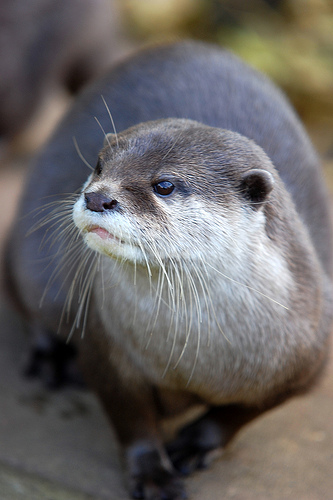
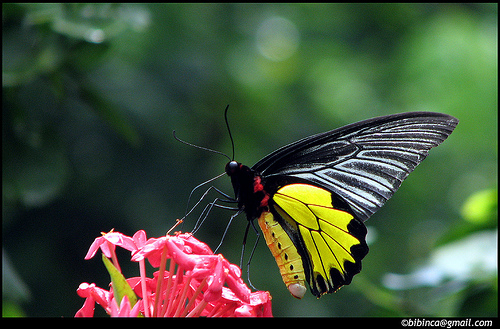
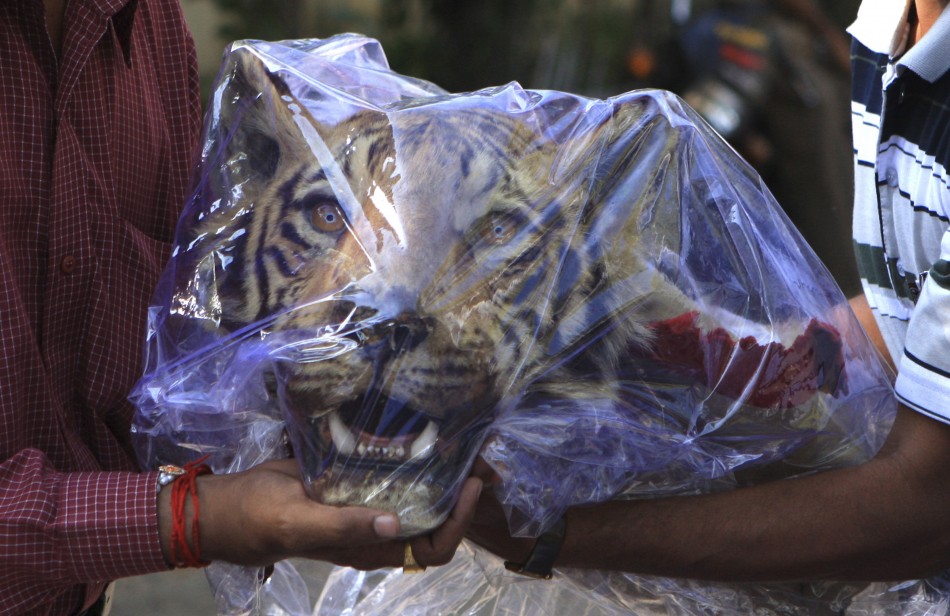
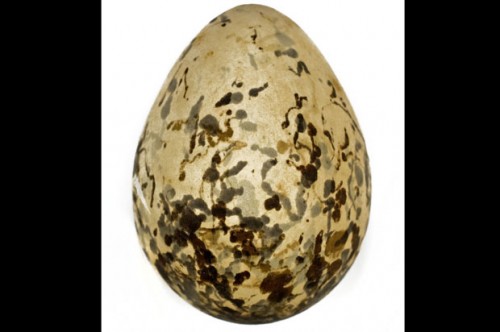
“Nature belongs to each one of us. People should not hold ourselves above other living things and have no right to drive them to extinction.”
That explains everything. How man considers himself supreme and plays with the nature which belongs to each and every living thing.
Nice attempt to spread awareness, Atula.. I appreciate it.
Regards,
Arun
Thanks Arun for dropping by. Yes, the statement does speak immensely of the way man behaves as the ruler of the world whereas we are just sharing it with the other millions of species. Do keep visiting.
ohhh so cute!!!!!